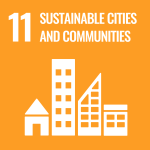










GEN1000 for students admitted to Year 1 before AY2025/26, Year 2 before AY2026/27, or Year 3 before AY2027/28, except with the permission of the Module Coordinator
N/A
Modern enterprises are more interested in meeting increasingly demanding environmental, social and governance metrics defined by broader society. To reach enterprise-wide sustainability, creating a distinct set of managerial competencies is necessary. This module provides a theoretically sound and highly relevant introduction to environmental, social, and governance metrics for a sustainable and responsible enterprise. It focuses on nine key competencies: contextualizing, conceptualizing, managing, strategizing, ESG reporting, sustainable financial investing, implementing, communicating, and innovating. Drawing from the classic background theories such as sustainable development, corporate social responsibility, and ESG, these concepts are applied to the most current business practices. The module also includes various tools for change at individual, company and systemic levels.
Upon completion of this module, students should be able to:
1. Contextualizing
1.1 Climate Change and Environmental Challenges
1.2 History of ESG, CSR, Business, Society and Environment
2. Conceptualizing
2.1 Corporate Sustainability and ESG Basics
2.2 Stakeholder Theory and Corporate Responsibility
2.3 ESG Challenge and Response
3. Managing
3.1 Responsible Management Process
3.2 Sustainable Business Model and Practices
3.3 Corporate Rights, Responsibilities, and Accountability
4. Business Ethics
4.1 Ethical Reasoning for ESG and CSR
4.2 Normative and Descriptive Ethical Theories
4.3 Ethics Management and Corporate Behavior
5. Strategies
5.1 Envisioning Responsible and Sustainable Enterprise
5.2 Strategic Management in ESG
6. ESG Reporting
6.1 Quantitative and Qualitative ESG Analysis
6.2 Risk, Opportunities and Performance Indicators
6.3 ESG Reporting and Communication
7. Sustainable Financial Investing
7.1 Sustainable Finance Basics
7.2 Green Finance and Carbon Trading
7.3 Responsible and Sustainable Investment Strategies
8. Implementing
8.1 Implementation Processes
8.2 Main and Support Functions in Sustainability
8.3 Supply Chain Sustainability
9. Communicating
9.1 Communicating Responsible Enterprise
9.2 Communication Challenges in ESG
10. Innovating
10.1 Innovation for Sustainable Change
10.2 Individual and Organizational Change
10.3 Systemic Change for ESG Goals